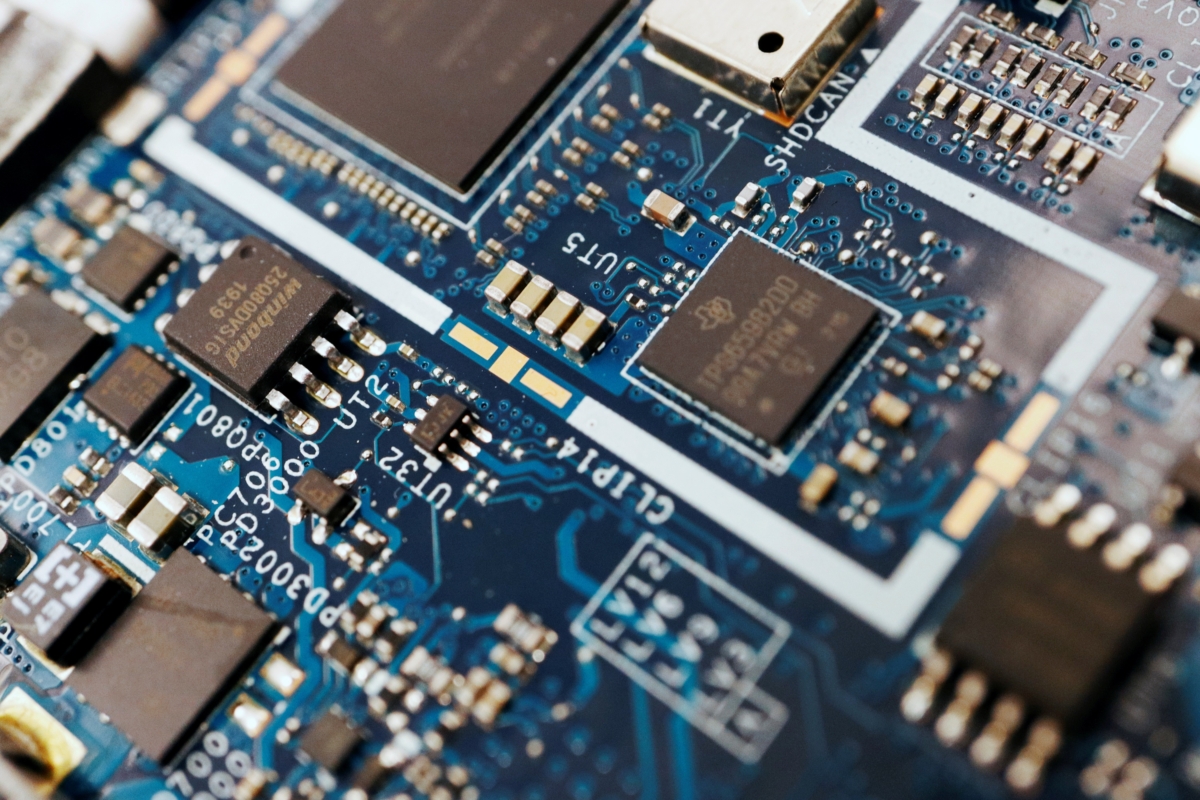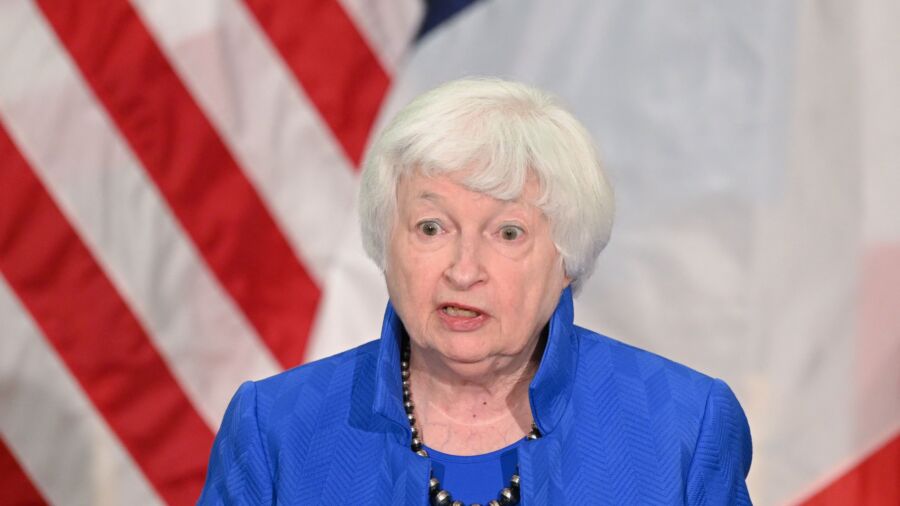Treasury Secretary Janet Yellen met with China’s ambassador on Monday amid an intensifying chip war between the United States and China as Beijing imposed new restrictions on metal exports.
China’s Ministry of Commerce said Monday that items related to gallium and germanium, which are crucial to making semiconductors, will be subject to export controls starting Aug. 1 in order “to safeguard national security and interests.”
Exporters of the two metals will need to apply for licenses and provide certificates, as well as details of the end-users of the items, if they want to ship the metals out of the country, according to the ministry.
On the same day, the U.S. Treasury Department said that Yellen had a “frank” and “productive” discussion with Chinese Ambassador Xie Feng about bilateral relations and global challenges relating to financial issues.
This came ahead of Yellen’s visit to Beijing on July 6 for meetings with senior Chinese officials. Yellen will be the second highest-ranking U.S. official to visit the country after State Secretary Antony Blinken, who visited Beijing last month to stabilize strained relations between the United States and China.
Yellen previously said that the United States seeks a healthy relationship with China and called for “cooperation on the urgent global challenges of our day,” such as climate change and debt distress.
She emphasized the need to address critical issues such as intellectual property protection, market access, and technology transfer, which have been points of contention in U.S.-China trade negotiations.
“We do not seek to decouple our economy from China’s. A full separation of our economies would be disastrous for both countries. It would be destabilizing for the rest of the world,” Yellen said at the John Hopkins School of Advanced International Studies in April.
US-China Chip War
While China did not elaborate on the motive behind its implementation of metal export controls, the move was widely seen as a retaliatory response to the U.S. sweeping export restrictions on shipments of chipmaking tools to China.
The United States last year imposed restrictions on access to American chipmaking technology to impede China’s technological and military advances.
Advanced semiconductor chips are used to make everything from pickup trucks to hypersonic missiles. Currently, more than 60 percent of the world’s supply of chips is produced in Taiwan, many of them with the help of U.S. research and design.

China’s ruling Chinese Communist Party (CCP) has since retaliated by banning products from U.S. memory chip maker Micron, citing national security risks that Washington claims “have no basis in fact.”
Cyberspace Administration of China (CAC) on May 21 urged local operators of “critical information structure” to stop purchasing from Micron, saying that the company had failed to pass a cybersecurity review. However, the CAC did not provide specific details regarding the risks identified during the investigation.
John Kirby, White House National Security Council spokesman, told reporters that Washington will continue to attempt to improve communications with Beijing despite the Micron ban.
He noted that President Joe Biden said in Japan during the G-7 summit that the Chinese spy balloon incident “changed everything,” but “I think you’re going to see that begin to thaw very shortly.”
However, Shen Rongqin, an associate professor at York University in Canada, told The Epoch Times that tensions between the United States and China in the technology sector will continue.
“As the U.S. imposed a comprehensive semiconductors blockade on China, from IC design to advanced packaging and testing, Micron may have seen this (Beijing’s Ban) coming and prepared,” Shen said.
Alex Wu and Andrew Thornebrooke contributed to this report.
From The Epoch Times

